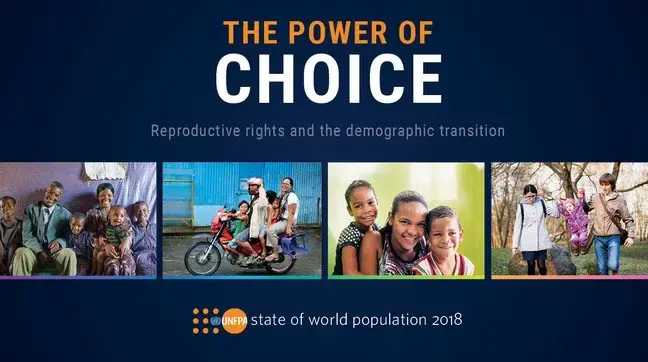Planning for development requires data analysis of current and future population trends and understanding of the social and economic consequences of population dynamics; population growth, fertility rate, mortality rates, migration and the change in age structure. Population data are important for policy and decision makers to learn how population trends and dynamics play a powerful role in development and, therefore, must be factored into planning and policy decisions.
Through census and surveys, UNFPA continues to support national efforts in collecting demographic data and strengthening the national information system. Based on the available census and population data, UNFPA supports the production of research studies on population dynamics and its linkages with development and economic growth through partnering with academia and research institutes. Then, through promoting the use of evidence based analysis, UNFPA supports government efforts to formulate people-centered development strategies, goals and targets that account for and address population dynamics.
Situation:
The projected number of Palestinians living in State of Palestine at the end of 2015 is 4.75 million: around 2.90 million reside in the West Bank and 1.85 million in Gaza Strip. Palestinian refugees make up 42.8% of the Palestinian population in Palestine: 27.1% of them in the West Bank and 67.3% in Gaza Strip. Palestine is facing a rapid population growth and large youthful population with 69% below the age of 29. The population growth rate stands high at 2.8% and it is expected to remain stable due to decline in mortality rates while fertility rate remains one of the highest in the Arab region standing at 4.06, with high disparity between Gaza and West Bank, 4.5 and 3.6 respectively. Furthermore, the current population density is a serious concern in Gaza Strip reaching more than 4500 inhabitants per one square kilometer.
The increase of youth population in Palestine for the past 20 years reflects the highest increase in the Arab countries, creating a youth bulge (share of the youth age to the total population) reaching 30%. This is the most serious developmental issue with its many consequences in terms of emergence of youth as a priority group.
The average age of population is increasing; the proportion of children below 15 declined to 39%, while the working age population is increasing reaching 57% in 2014. The rapid population growth and the change in age structure in Palestine will also have impact on social and economic sectors, and will increase demand on public services including: health care, education, employment, food, energy, etc. However, with the increase of working age population including youth, Palestine would be facing a demographic advantage to development if invested well in economic, social and governance policies and in human capital, while promoting equity, health, quality of education and productive employment, including for young people.
Programme Overview:
The Population and Development programme aims to strengthen national capacity for production, dissemination and utilization of disaggregated data on population and development issues, addressing demographic disparities and inequalities. In addition, the prgramme aims to increased evidence through population projection analysis and policy research on population dynamics and demographic dividend and their linkages with poverty reduction and social and economic growth. Also, the programme will strengthen policy dialogue and advocacy for the formulation and Implementation of rights-based policies that integrate evidence on population growth and its links to youth and women empowerment and development.
UNFPA interventions:
1. Strengthened policy dialogue and advocacy for the formulation and Implementation of rights-based policies that integrate evidence on population growth and its links to youth and women empowerment and development.
2. Strengthened national capacity for production, dissemination and utilization of disaggregated data on population and development issues, addressing demographic disparities and inequalities.
3. Increased evidence through population projection analysis and research on population dynamics and demographic dividend and their linkages with social and economic growth.
Strategic Interventions:
1. Support Palestinian Central Bureau of Statistics (PCBS) in data generation and dissemination on population issues, through provision of technical assistance and south-south cooperation for the 2017 Population and Housing Census and other population-based surveys
2. Support population projection analysis for” Palestine 2030”, with focus on impact of population growth on social sectors; addressing the growing needs for public services to meet future population needs.
3. Promote utilization of census data and other population surveys among line ministries, civil society organizations and academia to address population disparities and inequalities with special focus on women, adolescents and youth and other marginalized populations.
4. Support analysis and research on demographic dividend addressing opportunities for investment in young people and how to capitalize on demographic dividend to accelerate economic growth and reduce poverty.
5. Strengthen the national population committee to advocate and guide policy formulation on population dynamics and demographic dividend and ensure the integration of population trends and projections in the national development plan and sectoral strategies
6. Establish Knowledge sharing platform to strengthen partnership with universities, government and civil society organizations to promote and generate evidence on population and development to inform policy making. Develop capacity of young researchers to promote research on population issues addressing demographic trends in Palestine and its relations with development and economic growth
Partnership Strategy
Population issues are multi-sectorial and require collaboration and coordination among many actors. UNFPA works with Palestinian Central Bureau of Statistics, National Population Committee, Research Institutes and Academia, in addition to key line ministries; Ministry of Health, Education and Labor.
- See more at: https://palestine.unfpa.org/population-matters-0#sthash.yDHD670Y.dpuf





